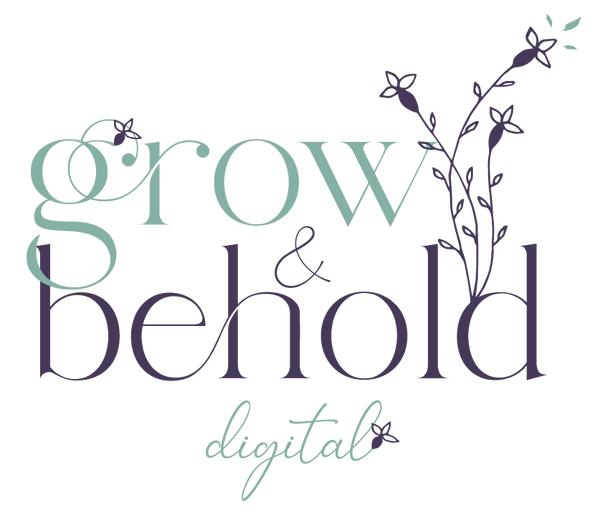
Strategies for Effective Email Marketing Campaigns
Email marketing is a vital element in today's digital world. It serves as a direct channel of communication between businesses and their customers, enabling them to reach a broader audience with ease. Furthermore, it's more than just a promotional tool; it's a powerful medium that fosters strong, lasting relationships with customers. By diligently nurturing these relationships, businesses can significantly increase customer engagement and loyalty, leading to higher sales and profitability.
Understanding Your Audience

Understanding your audience is critical to the success of your email marketing campaigns. It's essential to know who your customers are, what they value, and what kind of content they are interested in receiving. This knowledge helps you tailor your messages to meet their specific needs and interests, making your emails more relevant and engaging.
To gather information about your audience, you can use various methods such as surveys, customer feedback, website analytics, and social media insights. These tools can provide valuable data about your customers' demographics, behavior, preferences, and more. Moreover, you can also segment your audience based on these data. Segmentation allows you to send targeted emails to different groups within your audience, increasing the relevance and effectiveness of your campaigns.
However, understanding your audience is not a one-time task. People's needs and preferences can change over time, and so should your understanding of your audience. Regularly updating your customer profiles and segmentations can help you keep your emails relevant and engaging. It is an ongoing process that should be an integral part of your email marketing strategy.
Crafting Your Message
The cornerstone of any successful email marketing campaign lies in crafting a compelling message. This involves various key elements, the first of which is the subject line. This is the first thing that captures the reader's attention when they see your email in their inbox. An intriguing subject line can pique their curiosity and entice them to open the email. It's important to make it catchy but also relevant to the content of your email.
Next, personalization plays a significant role in enhancing customer engagement. By addressing your customers by their name or making references to their previous interactions with your business, you can make them feel valued. This personalized touch can increase the likelihood of them engaging with your email and taking the desired action.
Lastly, it's important to keep your message clear and concise. Bombarding your readers with excessive information can be overwhelming and might deter them from reading the entire email or taking the desired action. Make sure your message is straightforward and communicates exactly what you want the reader to know or do, without unnecessary fluff.
Building an Email List

The foundation of a successful email marketing campaign is a robust email list. This list is essentially a collection of your customers' contact information, including their email addresses, which you use to send out your marketing messages. It is through this direct line of communication that you can reach your customers with your unique value propositions and special offers.
Growing your email list can be an ongoing process, and one effective strategy for list growth is the exchange of valuable content or exclusive deals. By offering something of value, you provide a compelling reason for customers to share their email addresses with you. This could be a free ebook, a discount code, or early access to a new product or service. The key here is to ensure that what you're offering aligns with your audience's interests and needs.
Another strategy that can significantly enhance the effectiveness of your email marketing campaigns is segmenting your list. Segmentation involves dividing your email list into smaller, more targeted groups. These groupings can be based on various criteria, such as customer interests, purchase history, or demographic information. With segmentation, you can tailor your emails to the specific needs and preferences of each group, making your messages more relevant and engaging. This personalized approach can lead to higher open rates, click-through rates, and ultimately, more conversions.
Measuring Success

Measuring the success of your email marketing campaign extends beyond simply examining the sales figures. It involves a careful analysis of several key metrics that reveal different aspects of your campaign’s performance. These metrics include the open rates, which is the percentage of recipients who open your emails. This metric provides insight into the effectiveness of your subject lines and the timing of your emails.
Another critical metric to track is the click-through rates. This measures the percentage of recipients who click on the links in your emails. A high click-through rate indicates that your content is resonating with your audience and compelling them to engage further with your brand.
Finally, conversion rates are arguably the most critical metric as they measure the percentage of recipients who take the desired action after clicking on the link. This could range from making a purchase to signing up for a webinar. A high conversion rate signifies that your email campaign is effectively driving your audience towards your desired goal. By regularly analyzing these metrics, you can gain valuable insights into what’s working and what aspects of your campaign need improvement. This will enable you to fine-tune your strategies and make your future campaigns more effective.
Email marketing is a powerful tool that, when used properly, can significantly boost your business. By understanding your audience, crafting compelling messages, building a robust email list, and measuring your success, you can create and execute effective email marketing campaigns that deliver impressive results. If you found this blog helpful and you're interested in more small business tools and strategies, join our Grow Gang email list! You'll gain access to blogs, tips & tricks, as well as support and tools to help you on your small business journey.



